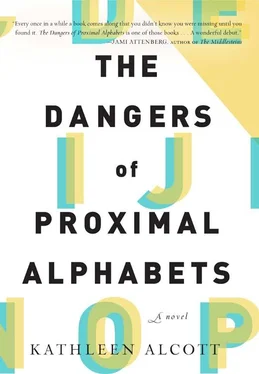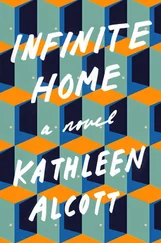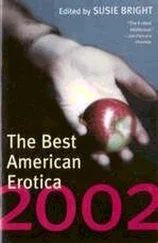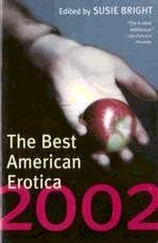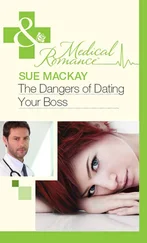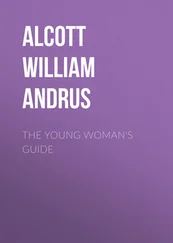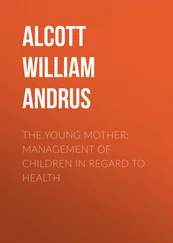
James’s answers are short, and I try to imagine where he is in his apartment, what sits on his coffee table, whether he and his neighbors are friendly. Trying to engage him in conversation is difficult, as he barely leaves the two-bedroom his inheritance covers. My father sends him fresh flowers once a week, through a local florist, and I have to wonder whether they’re placed in vases or just accrue on a sad, cluttered table.
“Not well,” he says.
“How not well?”
“I don’t think you want to know.”
I insist I do, insist that whatever it is, I’d like to sit in his cage with him a moment. Since being diagnosed with bipolar disorder and then suffering from ensuing hallucinations and delusions, his voice has not changed; I think I wish it had. Because the next thing he tells me is that he has been writing funeral arrangements and eulogies for people who are not dead. That they are, if he does say so himself, rather perfect. How many funerals had I been to, he asks, where the person was accurately represented?
“And do you … do you actually think they’re dead,” I ask, but don’t wait for the answer.
“Because if not, maybe it’s a useful exercise in, you know, honesty, the evaluation of those you care about, the qualities you both admire and take issue with—”
“Right,” he says, with cold precision. “Except I do. Believe they’re dead. It takes my shrink reminding me, and I only see him once a week.”
There is that myth, of course, which for a long time I let soothe me: crazy people don’t know they’re crazy . So he couldn’t be crazy, this boy I grew up with: profoundly sad, yes. A sad person whose intelligence fostered, in his illness, a duplicity — that somewhere, always, there was reason.
Because a stay in the hospital was expensive and never fixed anything, he has become skilled in the art of withholding from his therapist the catchphrases that signal suicide or harm to self. Learned to bathe his face in wistful optimism and indulge the doctor’s discussions of goals and hopes.
His first attempt was toward the end of Jackson and me; even now, I can’t tell whether it kept us together longer or brought speed and velocity to our close. Julia had moved to Mexico by then. She’d completed a medical interpreting/translating course and was living the good life with a crowd of expats she referred to by affectionate nicknames over the phone. When Jackson had finally gotten hold of her with the news, she hadn’t had much to say except that did he know that in Spanish, one didn’t get “the blues”—you got “the purples”! Could he believe it? It was no use with her, he said after he hung up. When he formed statements like that, I wasn’t allowed to agree or disagree.
We rose late the morning we were to visit him and were forced to shower together. It was a tiny shower, but we were experts in the geometry of not touching by then, switching in and out of the water with precision, handing off shampoo and soap without prompt. The smell and tingle of the tea tree shampoo on my scalp and neck was close to burning, reminiscent of good, painful things. He finished before I did, and I let the water run over me for a minute and wondered if, from above, this looked like tenderness. Like intimacy.
In the common room where the nurse led us, the only thing that clearly distinguished the patients from the concerned loved ones were the VISITOR stickers on our chests. James wore slip-on canvas sneakers and a bulky tan cardigan with leather elbow patches. When we asked how he was, he shrugged like Isn’t it obvious? On the phone he had mentioned he was finding it impossible to read anything, so we had brought him a book of crossword puzzles. He scowled and said thanks, and I knew immediately it had been a bad choice, an insult even. Crosswords were for people with jobs, who wanted a chance to play in their brain on Sundays over coffee. All he had been doing, I saw now, was playing in his brain: dark, menacing, circuitous games, with no rules and no way to win.
I was the only one who talked. Jackson was reserved, suspicious. It seemed to me that he resented the pain James was in: it came in daylight, its victim had acute knowledge of the disease’s spreading. The other patients I saw were likewise sedated, besides a chatty English guy with no visitors who made it his business to approach other people’s. The couches were clean and newish, and the thin blue paint on the walls could even be considered pleasant. From somewhere in the rear of the hospital there was yelling that gave into moaning and then yelling again. When it grasped at words, it was in Spanish. We didn’t ask, but James told us anyway.
“Carlos,” he said. “Schizophrenic, I think. Has this stuffed rabbit he carries around. The one nurse truly fluent in Spanish is on leave for two weeks, can you believe that? ”
The compassion in his voice made me hopeful, but his eyes darkened and he looked directly at Jackson for the first time.
“If only Mom was here, huh? Señora Bailey to the rescue.” And he began to cackle until tears came to his eyes. The nurse across the room moved from where she was crouching, speaking softly to a near catatonic young woman in braided pigtails, and surveyed the three of us for signs of alarm. Jackson was not laughing. He sat with his arms slack, palms up, as if waiting to receive or accept some understanding.
The screaming in Spanish had ceased and I had not noticed.
“Woo,” breathed James. “I haven’t laughed that hard since—”
It was a sentence he couldn’t finish.

While Jackson was the older brother, it often seemed otherwise in the eyes of our peers. He was an inch taller than James but never interrupted people while they spoke, never walked ahead or declared himself, in silent ways that add up, a king. He drank just as much as the rest of us (which was too much) but rarely appeared as intoxicated and was most likely to help someone vomit or listen patiently to maudlin rants. He read voraciously. He was drawn to fiction, as I was, but just as equally to fact. He read a biography of Jacques Cousteau with a pen in his hand, occasionally taking notes. For several weeks I fell asleep with his hand on my waist, him staring at the ceiling and telling me about Nikola Tesla. He could explain the magic of science so well that, in my mind, they were as good as his inventions, and I took pleasure in all the proliferating ways I’d loved him since childhood. Our parents, by then, had given up any weak protest to us sleeping together, and figured, somewhat correctly, that we took care of each other. It was mostly Jackson taking care of me, and me taking care of him by needing him.
Jackson had not told Julia about her younger son’s relationship with speed: partially out of a loyalty stemming from childhood, partially because she probably wouldn’t know how to deal with it any better than we could. He had dropped out of high school that fall, in his junior year, earned his GED, and bizarrely aced a few classes at the junior college (German, philosophy, marine biology) as well as assistant-managing the motel and writing music that grew consistently, and almost scarily, impressive. “Oh please tie a red balloon around my neck / the ribbon so long and the circle so full,” he sang from the back of his throat in a song that haunts me, “so if I can’t stay you’ll see me through the depths / the living so long and the breathing so dull.” The classes at the JC, he made clear, were not toward any sort of goal. They were for the sake of knowing — goddamn it — like they should be.
Читать дальше
